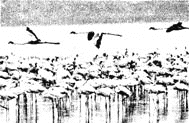New Payment Methods for Online Shopping in China
Payment Ways | Alipay(支付宝) | Tenpay(财付通) | Yeepay(易宝支付) | WeChat pay(微信) |
Appearing time | Dec 12th, 2004 | Sept 9th, 2005 | Aug 8th, 2003 | Jan 21st, 2011 |
Companies | Taobao | Tencent | Yeepay | Tencent |
Description | A transfer (中转) station (a third account (账户) between sellers and buyers) | |||
Ways | Through computers or mobile phones | |||
The number of cooperative banks | 180 | 5 | 9 | 11 |
The number of users | 30,000,000 | 3,000,000 | 100,000 | 3,000,000 |
1.According to the form above, we can know something about _________.
A.online shopping B.new payment methods
C.online stores D.the uses of the Internet
2.Which are from the same payment service company?
A.Tenpay and WeChat pay. B.Yeepay and WeChat pay.
C.Alipay and Tenpay. D.Tenpay and Yeepay
3.When you buy something on Taobao, the money you pay first goes to________.
A.a bank B.the seller directly
C.the seller’s mobile phone D.a third account between sellers and buyers
